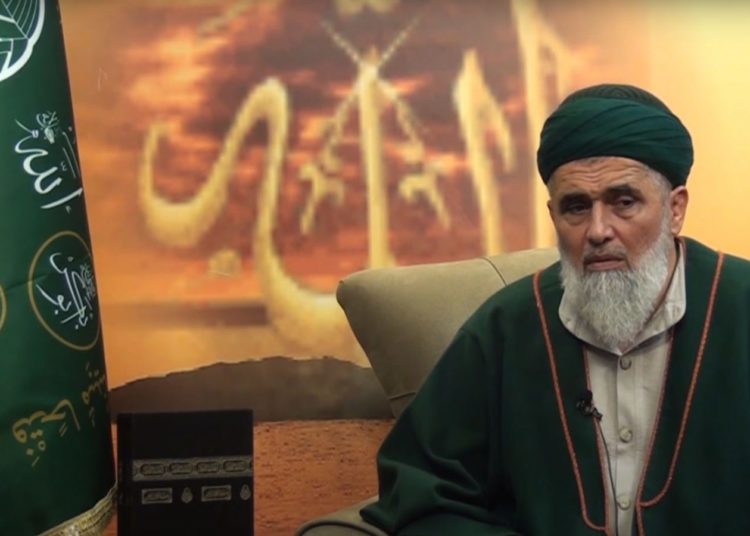Nordic Monitor
Fatih Nurullah Şağban, a Turkish cleric who has links to Indonesia’s Council of Ulema Tariqas and is closely aligned with Turkish President Recep Tayyip Erdoğan, is in the spotlight as his trial on charges of the sexual abuse of a minor continues.
Şağban, accused of sexually abusing a 12-year-old child, faces up to 55 years in prison for “repeated sexual abuse of a child” and “deprivation of a child’s liberty for sexual purposes.” His trial is ongoing in Turkey’s Sakarya province.
Şağban was arrested in September following a complaint filed with the authorities by the child’s family.
Praising the state of emergency declared after a coup attempt on July 15, 2016, Şağban, the leader of the Uşşaki sect in Turkey, praised President Erdoğan as “the sultan of a new Ottoman state” and defined the failed coup as a sign of the Turkish Republic’s demise.
In addition to some African and Asian countries, Şağban paid visits to Indonesia to deepen his ties with the country’s Council of Ulema Tariqas, hosted Indonesian preachers in Turkey and commented on Indonesian politics.

Şağban has a close relationship with some Indonesian preachers, including Sheikh Muhammad Ali Hanafiah Ar Rabbani from the Council of Ulema Tariqas. As a result of Şağban’s efforts, the council issued a fatwa in October 2018 defining the activities of the Gülen/Hizmet movement as “haram” (forbidden) and claiming that US-based Turkish Muslim scholar Fethullah Gülen’s “teachings and thoughts can damage the Islamic Aqedah [rules] based on the Qur’an.”
According to Indonesian media reports, Şağban revealed his support for one of the candidates during the 2019 presidential election in Indonesia. In a speech on elections in Algeria and Indonesia, Şağban said he was praying for Prabowo Subianto to win the presidential election in Indonesia.
Subianto, a former commander of the Indonesian Army’s special forces, was appointed defense minister in October 2019 by President Joko Widodo.

Şağban said in a speech broadcast by Nurani TV in October 2016 that the Republic of Turkey, which was established in 1923, had ended and that the second Ottoman Empire had become a reality.
“The leader of the second Ottoman Empire is Tayyip Bey [President Recep Tayyip Erdoğan]. He is our first sultan,” Nurullah Efendi said.
He also claimed that the new state that has been rising after a 100-year hiatus, referring to the Republic of Turkey, will be a continuation of the state established in Medina by the Prophet Muhammad.
According to Şağban, the reconversion of Hagia Sophia back to a mosque by President Erdoğan was an important step for the revival of an Islamic state in Turkey. The conversion has sparked a debate on the re-establishment of the caliphate, which was abolished by the founder of Turkey, Mustafa Kemal Atatürk, in 1924, among ruling Justice and Development Party (AKP) supporters.
Erdoğan’s triumphalist action was welcomed by the traditional nationalist and religious segments of Turkish society. His supporters, who were thrilled with the decision as well as with the first Friday prayers, have launched a discussion on the reconstitution of the caliphate as a next step.

In a video that went viral on social media, Şağban is seen urging his followers to “infiltrate the control mechanisms of the Turkish authorities.”
Since the coup attempt, Islamist groups have acted as a revolving door for installing religious fanatics and zealots in government jobs. More than 140,000 civil servants including soldiers, judges, teachers, police officers and diplomats have been dismissed by the government with no effective judicial or administrative investigation and replaced by neo-nationalist or Islamist officers in the aftermath of the abortive putsch.












